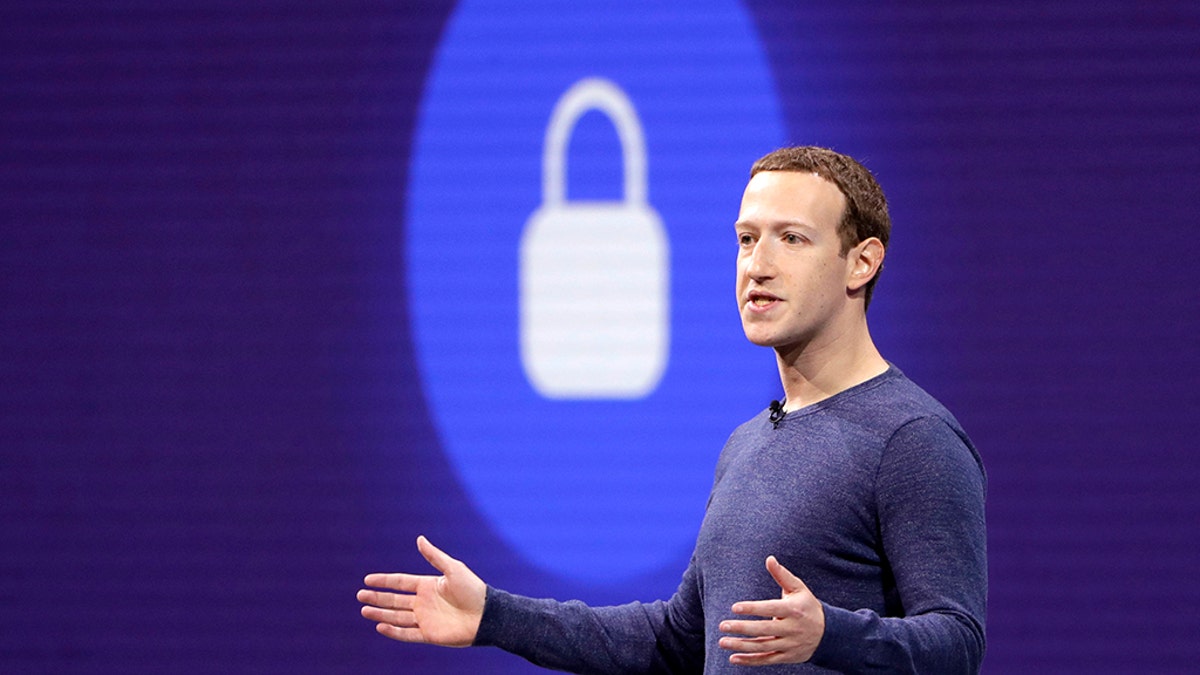
Facebook's Mark Zuckerberg. (Associated Press)
Since the 2016 U.S. presidential election, Facebook has come under fire for the rise of so-called "fake-news," an issue the company is correcting, albeit with mixed success. Despite its efforts, the social network has seen a significant drop in people using it for news, as messaging apps, including Facebook-owned WhatsApp, become more prevalent for news consumption.
The Digital News Report notes that social media, and in particular Facebook, has seen a sharp drop in news consumption globally, as well as in the U.S. "News consumption via Facebook is down 9 percentage points in the United States and 20 points with younger groups," Nic Newman, Research Associate, Reuters Institute for the Study of Journalism wrote in the report's overview.
Newman continued: "In our urban Brazilian sample the use of Facebook for news has fallen to 52 percent — a 17 point change from 2016."
FACEBOOK SLAMMED AHEAD OF SHERYL SANDBERG'S MIT COMMENCEMENT ADDRESS
The report was quick to add that the decline is not universal, with Facebook news usage rising in countries like Malaysia and the Czech Republic, "but in most countries the picture is one of decline."
Facebook recently announced it was funding news shows on its Facebook Watch platform, including one from Fox News, known as "Fox News Update."
Part of the decline is due to concerns about privacy and the often contentious nature of debate on the platform, but also a change to Facebook's algorithms, which have de-prioritized news in users News Feeds.
Following the company's fourth-quarter earnings, CEO Mark Zuckerberg said the changes, which included showing fewer viral videos, resulted in "reduced time spent on Facebook by roughly 50 million hours every day."
A source familiar with Facebook's thinking that these efforts, which Facebook outlined in a blog post earlier this year, said that Facebook will work to ensure that users see "news from publications the community rates as trustworthy," news they find both informative and relevant.
The research was done by the Reuters Institute for the Study of Journalism, at the University of Oxford and was based on a YouGov survey of "over 74,000 online news consumers in 37 countries including the U.S. and UK."
APPLE SMACKS FACEBOOK OVER WEB TRACKING
WhatsApp's rise in news
While concerning for Facebook, the findings from the report are not all bad, especially as WhatsApp becomes more important in how people share and consume news.
The study found that average usage for news on WhatsApp has doubled in four years, to 16 percent. The discussion about news on WhatsApp is also more significant, with 24 percent of respondents more likely to "take part in a private discussion about news" and 16 percent likely to "take part in a group set up specifically to discuss a news topic."
"Somehow WhatsApp seems a lot more private," said a female between the age of 20 and 29, who was part of a focus group. "Like it’s kind of a hybrid between texting and social media. Whereas in Facebook, for some reason it just feels like it’s public. Even if you’re in Messenger."
Other apps, such as Twitter, Instagram and Snapchat, also see some usage for news, but significantly less than WhatsApp, as these services are not primarily focused on messaging.
WHY US TEENS ARE DITCHING FACEBOOK
Privacy concerns
WhatsApp prides itself on end-to-encryption and never showing users ads, something that has put it at odds with parent company Facebook, which generates the vast majority of its revenue from advertising. Its privacy features may help explain why it has seen a large bump in news consumption.
"Privacy is an important issue for users, and this partly explains the growth in use of messaging apps, as opposed to more open social networks," Antonis Kalogeropoulos, Research Fellow, Reuters Institute wrote. "As noted in the Executive Summary, users in some ‘less free’ countries are more likely to think carefully before expressing their political views online."
The study also noted that the rise of consumers paying for news has been maintained since the election, particularly as the crisis in fake news persists. "Last year’s significant increase in digital subscriptions in the United States (the so-called Trump Bump) has been maintained, while donations and donation-based memberships are growing in popularity," the report reads.
FACEBOOK AND GOOGLE SLAMMED, ACCUSED OF BREAKING NEW GDPR DATA PRIVACY LAW
The research noted that concerns about fake news persist, with 54 percent of those polled saying they were worried about this issue, in countries like the U.S., Brazil and Spain.
Trust in news stood at 44 percent, but only 34 percent of those surveyed say they trusted news found via search and just 23 percent trusted news found on social networks such as Facebook.
In October 2017, Zuckerberg asked for forgiveness for the ways the social network “was used to divide people rather than bring us together.”
"For those I hurt this year, I ask forgiveness and I will try to be better," Zuckerberg wrote during the last night of Yom Kippur. "For the ways my work was used to divide people rather than bring us together, I ask forgiveness and I will work to do better. May we all be better in the year ahead, and may you all be inscribed in the book of life.”
Follow Chris Ciaccia on Twitter @Chris_Ciaccia




















